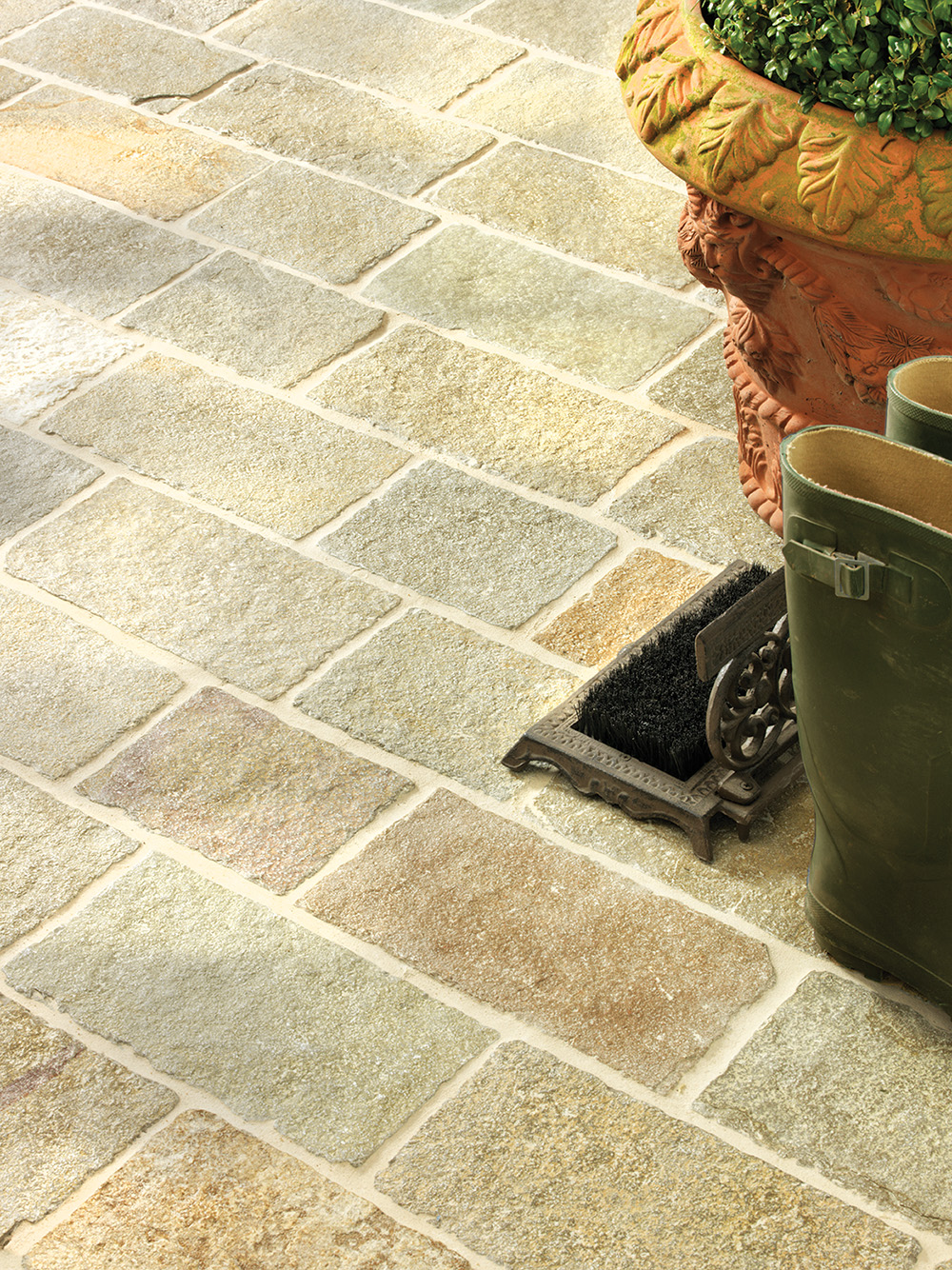Maybe you have a keen designer's eye and knew it would create the perfect foil for your interior scheme. Certainly you're aware that stone has the durability to last a lifetime and more.
Just as leather benefits from a rub with cream and wood needs its raw grain sealing; stone requires a little careful attention to keep it at its beautiful best. Here’s a guide to caring for your stone flooring that will keep it wowing for years to come.
General Tips
Rugs and mats
It takes an average of eight steps to transfer debris from shoes to the next surface we walk on. Doormats and rugs placed in entryways encourage shoe-wiping to dirt.
No Shoe Policy
Removing footwear is the best protection against grit and sand being carried in from outside, which has the potential to scratch the surface of the stone.
Spills
Act quickly and spills needn’t be a cause for panic. Keep a soft cloth to hand to mop up accidents immediately to prevent staining.
Generic products
Products specially designed for your stone are widely available. At best, a generic cleaning product causes build-up on your stone flooring, leaving a dull appearance over time. At worst, these products may damage the floor. Be particularly careful not to use acidic or abrasive products on marble, travertine and limestone.
Sweep, dry mop or vacuum regularly
Use a soft broom, dry mop or vacuum cleaner (with the spinning brush deactivated). Particles will collect on your floor if left unchecked, especially in cracks and crevices. These can be abrasive to the surface if trodden in causing your floor to lose its shine.
Wet cleaning
Mopping with water every few days helps keep your floor bright and clean. Use minimal water, wringing the mop out firmly between uses. Change the water frequently and thoroughly rinse off any cleaning product used, as a residue will leave a dull film and attract dust and grime.
Steaming
For a deeper clean, use a steam cleaner to help to lift stubborn pockets of dirt. Be sure to dry your stone floor carefully after steaming.
Resealing
Your stone floor should be sealed every one to two years. To test whether your floor needs resealing, drop a little water onto a small area and observe whether it has been absorbed into the tile after five minutes – a darker spot might appear. If so, your floor would benefit from resealing.
Stone-Specific Tips
Limestone, Marble and Travertine
Never use acid-based or abrasive cleaning products on limestone, marble or travertine. These will cause physical damage to the stone which cannot be rectified.
A poultice is an effective stain-removing paste you can make at home. Mix a cup of flour and a small amount of hydrogen peroxide to form a paste. Wet the stained area with distilled water and spread a thick layer of the paste over the stain. Leave the poultice for a day or two (consider covering with cling film and taping the edges down with masking tape to protect the area). After it’s had a chance to work, wipe away the poultice with a damp cloth.
Porcelain
Unlike the calcareous stones above, porcelain will not react with acid. A vinegar solution is perfectly acceptable to help remove mineral deposits on from porcelain floors. Rinse the tiles with distilled water to prevent further deposit marks. Wood effect porcelain stands up to thorough cleaning, so go ahead and steam clean your floor as necessary.
Terracotta
Terracotta becomes naturally more porous over time, leaving it vulnerable to stains and watermarks. Traditionally, boiled linseed oil is used to restore terracotta tiles. Vacuum or sweep the floor thoroughly, scrub and rinse away all dirt. Allow some time for the floor to dry before oiling with a paintbrush dipped in the linseed oil. Finish the floor with a protective sealer.
Slate
While not as sensitive to acid as other stone, slate can still be damaged or discoloured by acids. A mixture of equal parts water and hydrogen peroxide can be sprayed onto slate and rinsed thoroughly to help remove stains.
A stone floor adds character and value to your home. Caring for and maintaining your stone products will protect it for generations to come. If you need any further advice on cleaning, repairing or renovating a stone floor our stone experts will be delighted to help.

